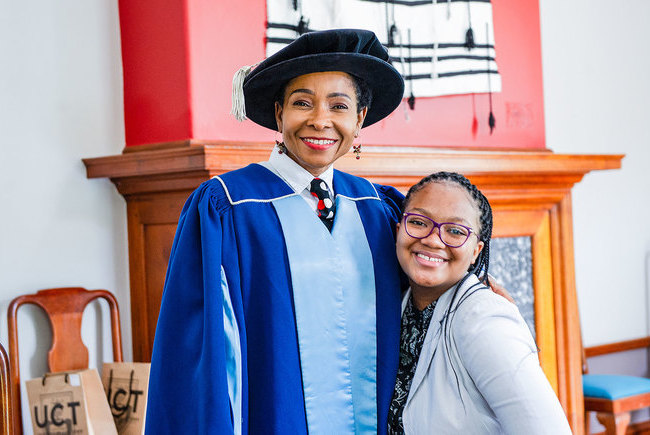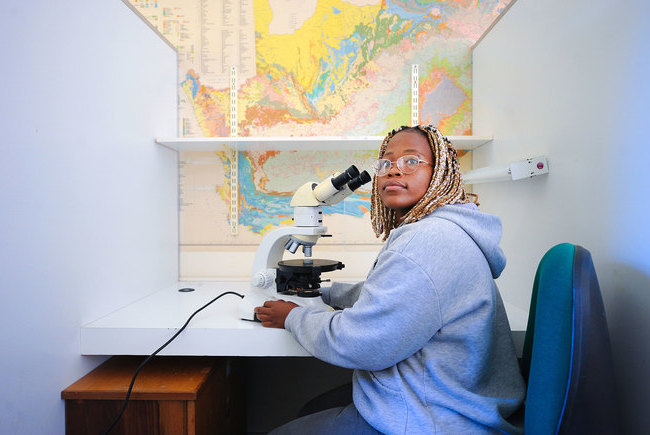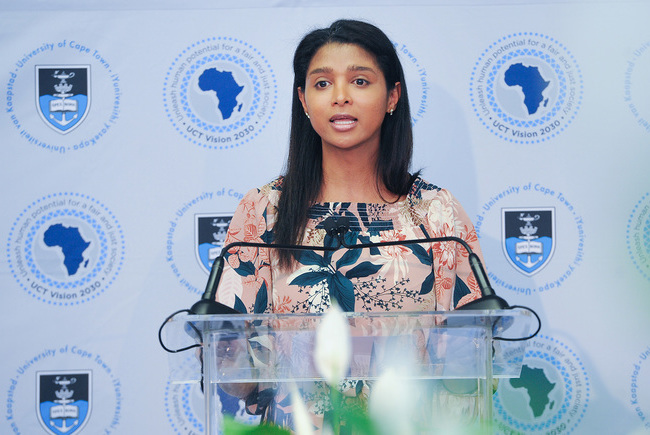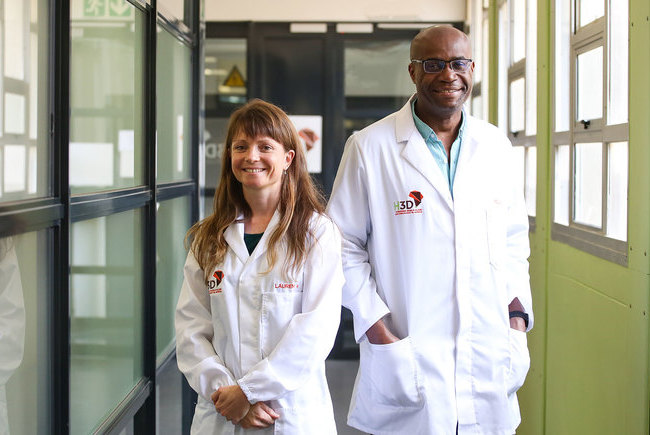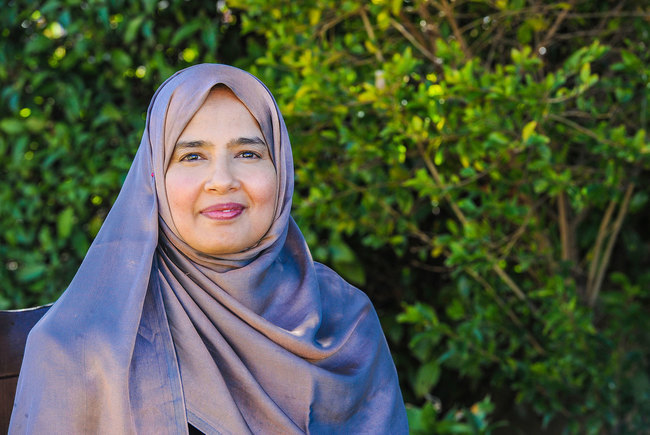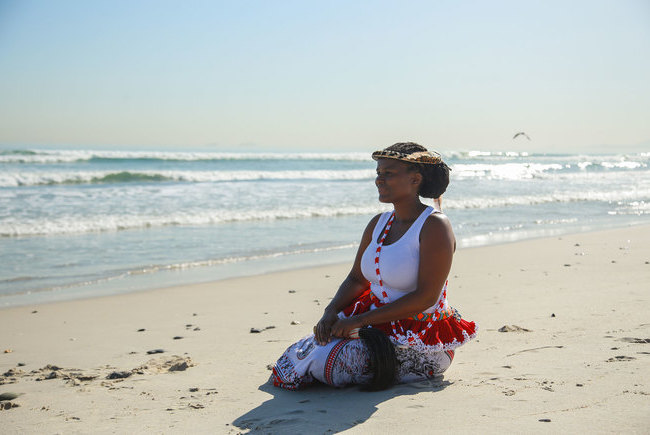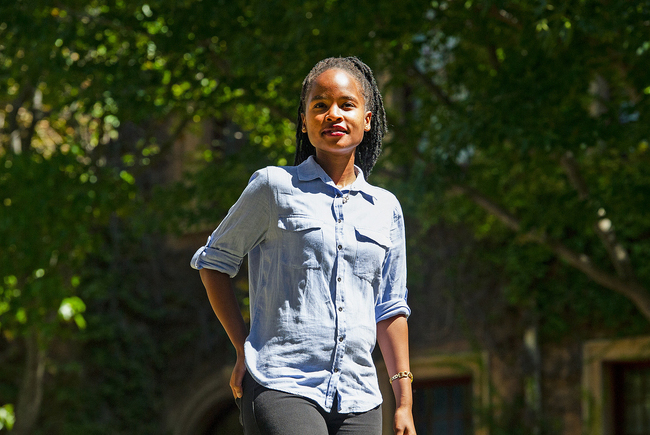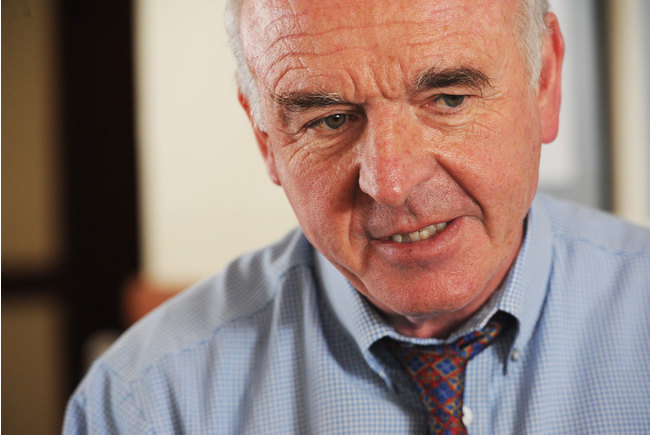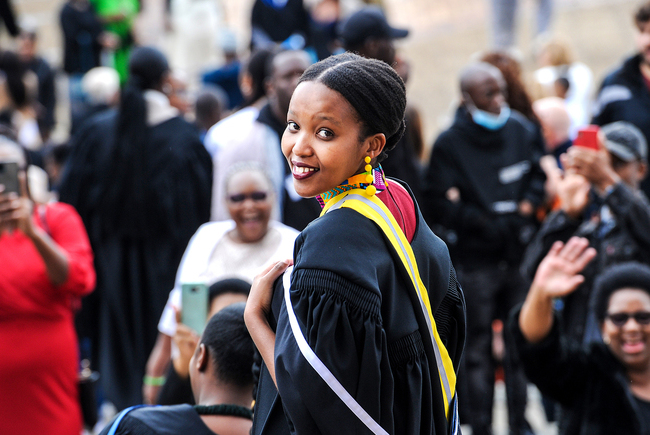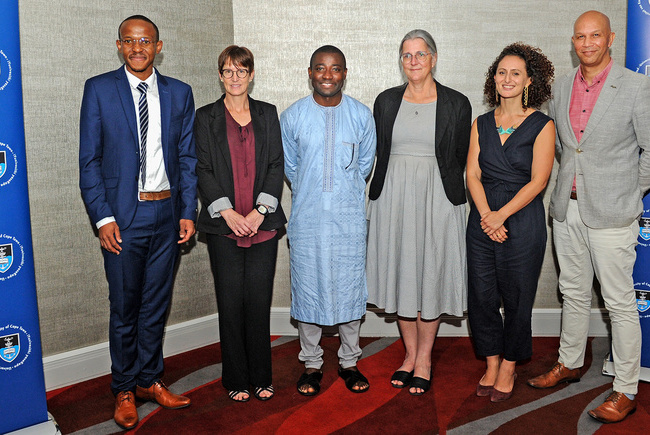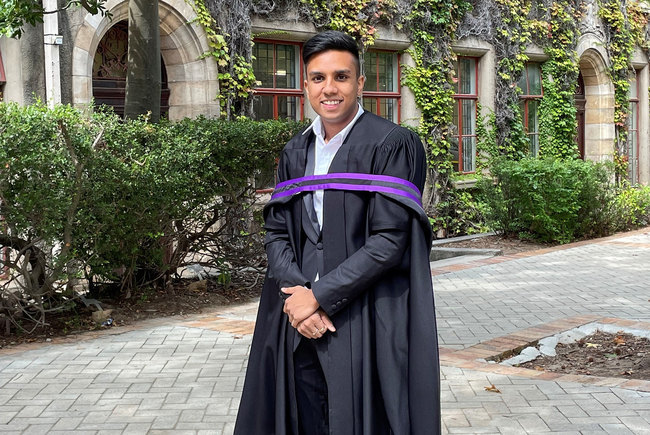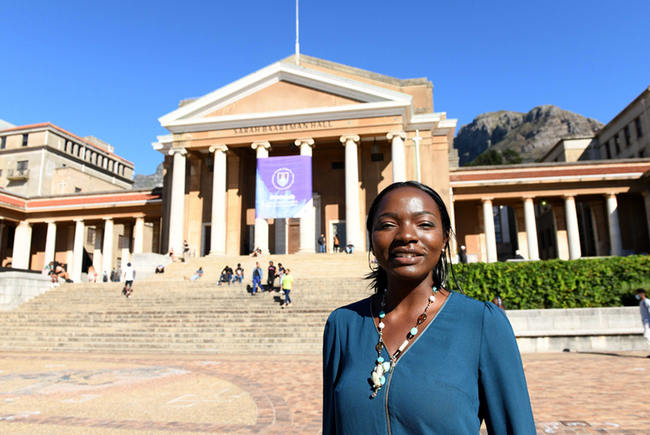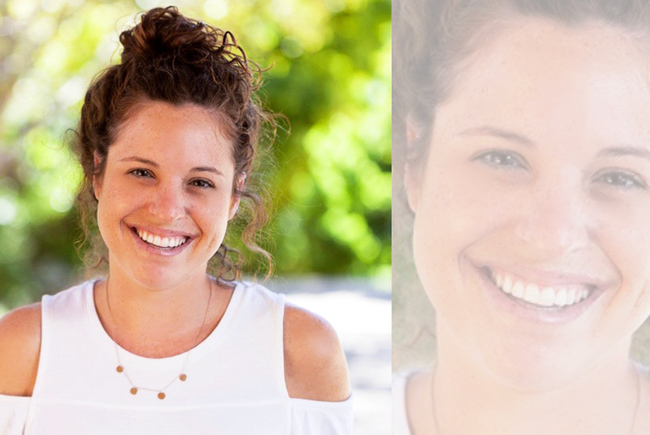Yuri Behari-Leak: Taking the road less travelled
31 March 2022 | Story Nicole Forrest. Photo Lerato Maduna. Read time 8 min.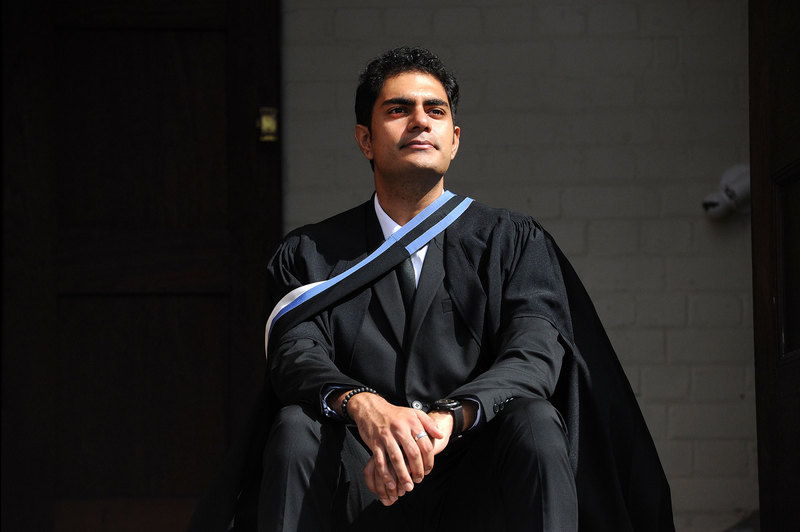
American educator and author of The 7 Habits of Highly Effective People, Stephen Covey, noted that “[s]trength lies in differences, not similarities”. The theory of transdisciplinary knowledge and research confirms this. As does the success of inspirational graduate Yuri Behari-Leak, who this year graduated with a triple-major degree.
Throughout his academic career, Yuri has always had a broad range of interests. “I was the academic type, but enjoyed my time in arts and culture through acting, writing and directing,” he said.
When starting his studies at the University of Cape Town (UCT), the inspirational graduate had intended to obtain an MBChB, but his destiny wasn’t in the medical field. “I started studying a Bachelor of Social Sciences at UCT in 2018 and was actually supposed to pursue a medical degree, but fate steered me towards law and the humanities, and I haven’t looked back since,” he said.
“Once I decided I would be studying humanities, I immediately knew I wanted to major in psychology. I also noticed that the Faculty of Humanities allowed you to pursue majors from other faculties, so I added law to my degree. I completed these undergraduate degrees in 2020, but by then I’d decided to extend the completion of my undergraduate to 2021 as I’d added my third major in film and television studies.”
The study of storytelling
For Yuri, his interest in combining psychology, law and film was in the fact that these subjects allowed him to explore himself and the world around him to better understand how to bring about change.
“Psychology inspires me for its emphasis on the importance of exploring and understanding oneself, mind, body, emotions, behaviours and motivations in order to live a healthier, more holistic, integrated and balanced life. Law has the potential to make real, substantive and tangible change in people’s lives, which is both exciting and humbling to be a part of.
It sometimes feels like I am studying storytelling as opposed to three separate fields.”
“Film, on the other hand, engages our thoughts, emotions and imaginations to create new ways of expressing and exploring the meaning of life, and envisaging new social imaginations. It allows us to reflect on ourselves and thus learn and grow,” he explained.
Aside from speaking to his varied interests, these areas of study are also excellent for transdisciplinary research and knowledge-building.
The advantages of the transdisciplinary approach have been seen in a variety of cases where solutions to issues in one discipline have been found in an ostensibly unrelated field. Some of the most well-known examples involve healthcare practitioners applying Formula One pit stop knowledge to provide enhanced patient care.
According to Yuri, the advantages of this approach can also be seen across humanities such as psychology, law and media. “Each field is about storytelling: the stories we tell ourselves about ourselves and others through psychology; the stories we tell ourselves to invoke our rights and enjoy our dignity, freedom and equality in society through law; and the stories we tell to connect emotionally with others through film. It sometimes feels like I am studying storytelling as opposed to three separate fields,” he said.
“This storytelling connection has enabled me to identify many transferable skills. Psychology has consistently reminded me of my personhood and the strengths and limitations thereof throughout everything I’ve written and created. Law has helped to hone my critical thinking and analytical skills, which help me to gain a deeper understanding of the theories I come across. Finally, film has opened up new ways of thinking more creatively and courageously.”
A social justice trifecta
In addition to the academic interrelation of his fields of study, Yuri has a keen interest in the potential these areas have for advancing social justice.
“In psychology, the exploration of self and society can be in service of social justice and the greater good of humanity and society. The law lets us know that there’s always the possibility of a brighter and more equitable future which we can all work towards, while film is the ultimate act of creative empathy in the way in which it tells stories about life, people and society,” he noted.
“Each field also has potential for advancing social justice in different ways. Psychology provides opportunities to work with real-life social issues. Law allows one to advance social justice in more permanent, institutional and systematic ways with long lasting effects for generations to come. Film gives us the opportunity to challenge the status quo and mainstream ideologies while imploring us to think and act in a more socially conscious way.”
“I have … participated in activities such as volunteer tutoring for children from under-[re]sourced schools, which makes a smaller yet more practical difference in people’s lives.”
While the theory of social justice is a point of interest, implementing its practice is a passion for Yuri – one that he has followed throughout his time at UCT.
“Being a Psychology tutor has given me an opportunity to encourage undergraduate students to think about social justice in their assignments, essays and projects. Mooting (ie simulated court proceedings) has inspired me to think about social issues with social justice and a means to attain it,” he said.
“I have also participated in activities such as volunteer tutoring for children from under-[re]sourced schools, which makes a smaller yet more practical difference in people’s lives. This year, I am involved in an incredible psychology project around critically exploring knowledge produced about [gender-based] and sexual violence, which will present many opportunities to advance social justice.”
The value of taking the road less travelled
Despite his impressive academic achievements, Yuri’s modesty and desire to help others shine through. “My story being described as inspirational initially surprised me. From my perspective, I was just studying three fields that I enjoyed and didn’t see the need to choose between them.
“This honour makes me believe in the value of taking the road less travelled and appreciate the journey itself more than the destination. It has also made me reflect on how thankful I am to my family for supporting me in all my endeavours over the past four years, and for always believing in me.
“It feels humbling for my story to be considered inspirational. I hope that it shows others that sometimes it’s not just the triple major – or any major – that matters, but what these majors can teach you about yourself, and what they can inspire you to do, accomplish and become,” he added.
Quickfire Q&A
What’s your favourite movie?
This question is impossible for me to answer as it changes all the time. For now, I’ll say Her by Spike Jonze, as it’s been on my mind recently.
Which piece of case law has had the greatest impact on you?
Economic Freedom Fighters v Speaker of the National Assembly and Others; Democratic Alliance v Speaker of the National Assembly and Others. It proved to me that even in 2016, over two decades after 1994, South Africa’s constitutional democracy is robust, vibrant and wholeheartedly committed to justice and constitutional values.
Which psychological theory do you find most interesting?
Many options here, but one of my favourite theories and frameworks I learned in Psychology was intersectionality, which basically explains that our unique lived experiences are produced by the dynamic interaction and overlapping of many social identities.
 This work is licensed under a Creative Commons Attribution-NoDerivatives 4.0 International License.
This work is licensed under a Creative Commons Attribution-NoDerivatives 4.0 International License.
Please view the republishing articles page for more information.
Highlights from 2022
As we look back on 2022, we celebrate some of the stories that were popular with readers of the UCT News website during the year.

The Hasso Plattner d-school Afrika at UCT hosted the prestigious d.confestival, the first design thinking event of its kind in Africa.
13 Jan 2023 - 4 min read Readers’ Choice 2022
UCT researchers were honoured for their research at the NRF awards, while others were added to the NRF’s list of A-rated scholars.
12 Jan 2023 - 9 min read Readers’ Choice 2022
UCT is one of the best places in the world for development studies, according to the subject rankings from Quacquarelli Symonds.
12 Jan 2023 - 2 min read Readers’ Choice 2022
UCT was ranked 237th in the world by the Quacquarelli Symonds university rankings.
11 Jan 2023 - 3 min read Readers’ Choice 2022
UCT’s Faculty of Science graduation walk of celebration.
11 Jan 2023 Readers’ Choice 2022
UCT’s Faculty of Humanities graduation walk of celebration.
11 Jan 2023 Readers’ Choice 2022
UCT was been ranked among the top 100 universities in five subject areas by ShanghaiRanking’s Global Ranking of Academic Subjects 2022.
09 Jan 2023 - 3 min read Readers’ Choice 2022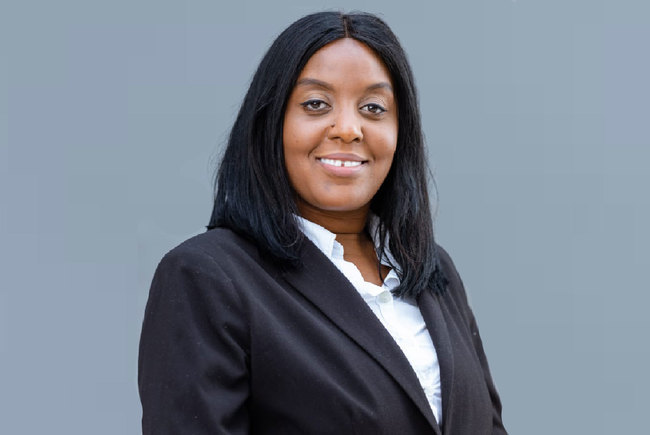
UCT doctoral student Mweete Debra Nglazi’s research showed that obesity in SA women of childbearing age is due to a lack of physical activity and increased consumption of unhealthy food.
09 Jan 2023 - 5 min read Readers’ Choice 2022
Master’s graduate Dr Joshua Fieggen was one of four UCT alumni to receive a 2023 Rhodes Scholarship.
09 Jan 2023 - 5 min read Readers’ Choice 2022
UCT researcher Dr Katherine Antel has received two international awards for work in HIV-associated lymphoma.
06 Jan 2023 - 3 min read Readers’ Choice 2022
UCT Vice-Chancellor Professor Mamokgethi Phakeng said design thinking and interdisciplinary research foster habits of collaboration, creative confidence and a trial-and-error mindset.
05 Jan 2023 - 5 min read Readers’ Choice 2022
UCT’s Forest Hill Residence launched the innovative “You Have the Drive” programme to help students acquire their driver’s licences.
05 Jan 2023 - 7 min read Readers’ Choice 2022
The 2020 and 2021 Student Leadership Awards recognised the outstanding contributions made by student leaders and organisations in an online ceremony.
04 Jan 2023 - 6 min read Readers’ Choice 2022
UCT remained the top university on the continent according to ShanghaiRanking’s 2022 Academic Ranking of World Universities.
03 Jan 2023 - 3 min read Readers’ Choice 2022
Professor Mamokgethi Phakeng lauded VC Excellence Award winners at a COVID-19-delayed event held at Glenara.
30 Dec 2022 - 4 min read Readers’ Choice 2022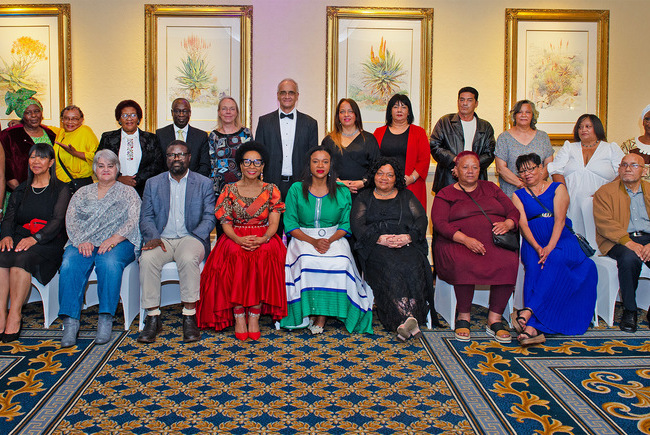
UCT leadership and staff gathered at the Table Bay Hotel on 25 October for a celebration dinner in honour of the 2022 UCT retirees.
30 Dec 2022 - 7 min read Readers’ Choice 2022
UCT is among the top 60 most international universities in the world, according to the 2022 list released by Times Higher Education.
29 Dec 2022 - 3 min read Readers’ Choice 2022
UCT’s Associate Professor Amshuda Sonday’s promotion to the professoriate took effect on 1 January 2022.
29 Dec 2022 - 6 min read Readers’ Choice 2022
Associate Professor Shannon Morreira’s promotion to the professoriate marked a full-circle moment for her academic career at UCT.
28 Dec 2022 - 8 min read Readers’ Choice 2022
Employees owe a duty of care to safeguard their colleagues from COVID-19 harm, wrote UCT’s Pierre de Vos.
28 Dec 2022 - >10 min read Readers’ Choice 2022
UCT researchers excelled among the University of Stanford’s Top 2% Scientists in the World.
23 Dec 2022 - 2 min read Readers’ Choice 2022
UCT Vice-Chancellor Professor Mamokgethi Phakeng wished the matric class of 2022 well as they wrote their final exams.
23 Dec 2022 - 3 min read Readers’ Choice 2022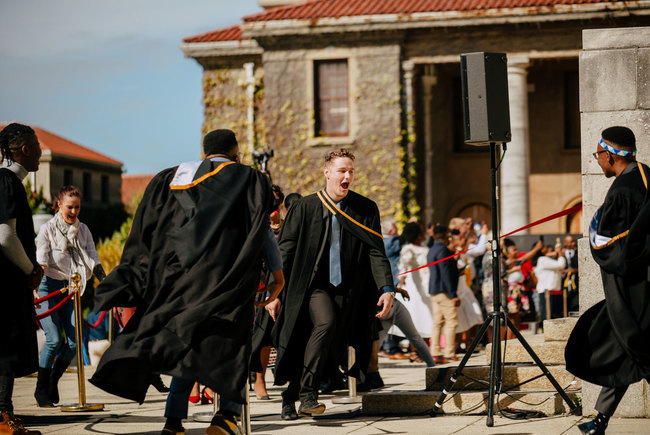
In April, UCT was ranked the best university on the African continent and 270th worldwide, according to the Center for World University Rankings.
22 Dec 2022 - 2 min read Readers’ Choice 2022
The three-day First-Year Campus Reception programme took place in the Sports Centre on upper campus.
22 Dec 2022 - 1 min read Readers’ Choice 2022
UCT soars 23 places to land at 160th globally in the latest international university rankings published by Times Higher Education.
21 Dec 2022 - 3 min read Readers’ Choice 2022
UCT’s executive said farewell to the SRC at a dinner hosted by VC Professor Mamokgethi Phakeng on 16 November.
21 Dec 2022 - 8 min read Readers’ Choice 2022







